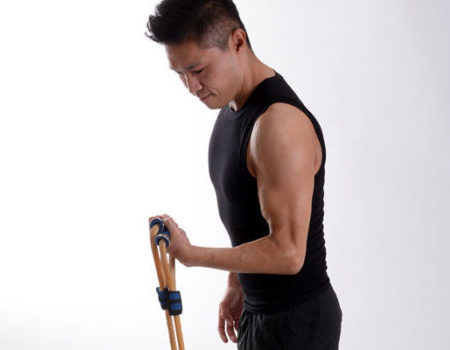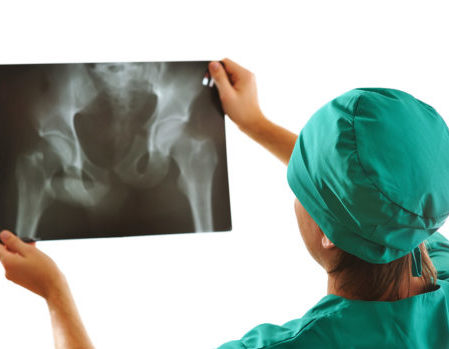Carpal & Cubital Tunnel Treatment From a Hand Specialist in Louisville, KY
 Treatment for carpal and cubital tunnel syndromes is a specialty of Nicholas Foeger, MD, PhD—an orthopedic hand specialist and a member of our team here at Louisville Orthopaedic Clinic. Dr. Foeger merges compassionate, personalized care and progressive treatment methods to achieve optimal outcomes and enhanced quality of life for his patients. If you live in the Louisville, Kentucky, area and are experiencing possible symptoms of carpal or cubital tunnel syndromes, turn to Dr. Foeger and the expert team at Louisville Orthopaedic Clinic for the world-class care you deserve.
Treatment for carpal and cubital tunnel syndromes is a specialty of Nicholas Foeger, MD, PhD—an orthopedic hand specialist and a member of our team here at Louisville Orthopaedic Clinic. Dr. Foeger merges compassionate, personalized care and progressive treatment methods to achieve optimal outcomes and enhanced quality of life for his patients. If you live in the Louisville, Kentucky, area and are experiencing possible symptoms of carpal or cubital tunnel syndromes, turn to Dr. Foeger and the expert team at Louisville Orthopaedic Clinic for the world-class care you deserve.
Carpal Tunnel Syndrome vs. Cubital Tunnel Syndrome
Let’s take a closer look at the similarities and differences of these two common hand conditions and what symptoms they may cause:
Carpal Tunnel Syndrome
Carpal tunnel syndrome occurs when the median nerve—one of the primary nerves in the hand—is compressed or pinched at the wrist. The median nerve runs from the neck to the hand and passes through the carpal tunnel, a narrow passageway that is formed by several small wrist bones (called carpal bones) and the transverse carpal ligament.
When the carpal tunnel becomes narrowed as a result of tissue swelling or overuse injuries, it can press against the median nerve and trigger unpleasant symptoms like:
- Weakness and reduced coordination in the hand or fingers
- Numbness and burning or tingling sensations, usually in the thumb or the index, ring, or middle fingers
- Shooting pain or numbness that may travel up the arm and into the shoulder
- Sudden shock-like sensations that shoot to the fingers
It’s important to speak with a doctor if you have any of these symptoms, especially if they persist. Carpal tunnel syndrome may cause permanent damage if it is left unaddressed.
Treatment for carpal tunnel syndrome often involves a combination of conservative approaches, including taking anti-inflammatory medications, receiving pain-relieving corticosteroid injections, and wearing a wrist splint at night. If symptoms are severe or do not improve, surgery to relieve pressure on the median nerve may be recommended.
Cubital Tunnel Syndrome
Also known as ulnar nerve entrapment at the elbow, cubital tunnel syndrome occurs when the ulnar nerve becomes compressed. The ulnar nerve is one of the major nerves in the arm, running from the neck down through the hand. It may become constricted at the inside of the elbow when it passes through the cubital tunnel—a tunnel formed by tissues beneath a boney bump (the medial epicondyle, or the “funny bone”). The ulnar nerve is just under the skin at this point, hence the unusually intense pain that can occur when you hit your funny bone!
The exact cause of cubital tunnel syndrome isn’t always known, but it often results from placing pressure on the elbow or holding the elbow in the same position for an extended period of time. Be sure to promptly speak with a doctor if you experience any possible symptoms of cubital tunnel syndrome, such as:
- Numbness and tingling sensations in the ring and pinky fingers, especially when the elbow is bent
- A weakened hand grip
- Visible muscle deterioration in the hand
Many people with cubital tunnel syndrome are able to find relief through conservative methods, including wearing an arm brace at night and practicing nerve-gliding exercises to reduce nerve compression. If muscle deterioration has occurred or symptoms do not improve with conservative treatments, surgery to take pressure off the ulnar nerve may be recommended.
Schedule an Appointment
Contact Louisville Orthopaedic Clinic today to consult with an orthopedic hand specialist about your symptoms and our approach to carpal and cubital tunnel syndrome treatment. We accept most major health insurance plans.



 Our patients can receive MRI imaging onsite at both our Louisville and New Albany Clinics.
Our patients can receive MRI imaging onsite at both our Louisville and New Albany Clinics. Providing the latest advances in orthopedic surgery is our specialty.
Providing the latest advances in orthopedic surgery is our specialty. We take a unique, multidisciplinary approach to pain management.
We take a unique, multidisciplinary approach to pain management. Our physical therapists use advanced techniques to help restore strength and mobility.
Our physical therapists use advanced techniques to help restore strength and mobility.  We provide comprehensive, conservative care for a wide variety of foot and ankle conditions.
We provide comprehensive, conservative care for a wide variety of foot and ankle conditions. We offer same- and next-day care to patients with acute injuries.
We offer same- and next-day care to patients with acute injuries. Get back in the game with help from our sports medicine specialists.
Get back in the game with help from our sports medicine specialists.  Our centers are equipped with a state-of-the-art digital X-ray machine.
Our centers are equipped with a state-of-the-art digital X-ray machine.